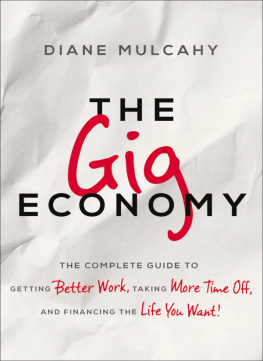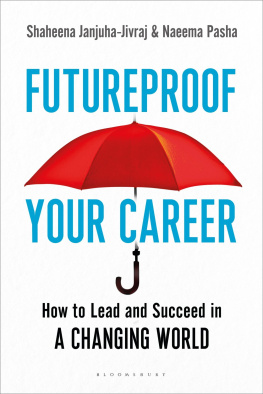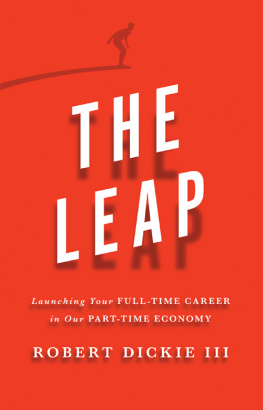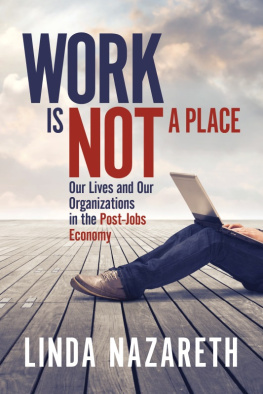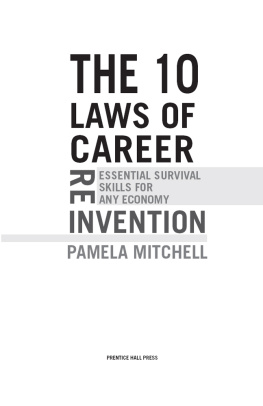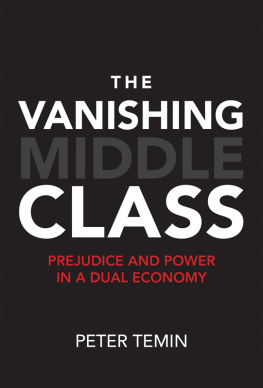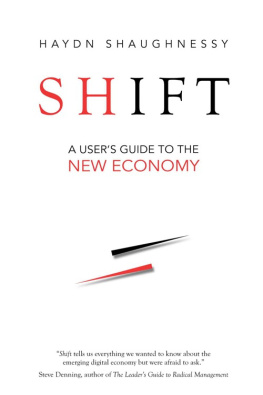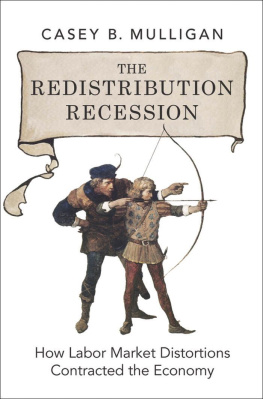Thank you for downloading this Atria Books eBook.
Join our mailing list and get updates on new releases, deals, bonus content and other great books from Atria Books and Simon & Schuster.
C LICK H ERE T O S IGN U P
or visit us online to sign up at
eBookNews.SimonandSchuster.com
We hope you enjoyed reading this Atria Books eBook.
Join our mailing list and get updates on new releases, deals, bonus content and other great books from Atria Books and Simon & Schuster.
C LICK H ERE T O S IGN U P
or visit us online to sign up at
eBookNews.SimonandSchuster.com
To all of my family past and present, on my American and Zimbabwean sidesthe farmers, public servants, military, teachers, and writers, stretching back generation after generationwho worked hard and led me to my own path.
Contents
The way you support yourself can be an expression of your deepest self, or it can be a source of suffering for you and others.
Thich Nhat Hanh, Buddhist teacher
Introduction
The Future of Work Is You
J UST AS I was finishing this book on careers, I ended up at the crossroads myself, with an apples-and-oranges set of job choices. On the one hand, I know Im lucky, especially in a volatile economy. On the other hand, Im terrified of making the wrong decision. One opportunity would lead me to be (at least temporarily) bicoastal, while the other would allow me to remain mainly in New York. Im also considering adopting a child as a single woman, and my workstylethe place where job meets personal lifehas to align with that goal. I could list all the ways in which my choices differ, but suffice it to say that while I write, I am weighing the scales right now .
Youd think that writing a book on the future of work in Americaspecifically on how to find your best and most fulfilling optionswould enable me to make a snap decision. Well, not so much. Im not some kind of job oracle, speaking from the mountaintop. Im here, right here with you , as we both make important choices. Years of reporting and researching this book have exposed me to the many different ways that people think about life and careers, and have given me a big-picture vision of jobs and the economy; theyve also helped me understand better my own heart and my own choices.
How do the most successful people in America do so much? How do people recover from devastating employment disasters, whether thats getting laid off, fired, or cleaning up the mess left by your own on-the-job mistake? How do we choose ethical ways of earning over unethical ways, if we know we will have to work harder and earn less? And how do we make smart decisions about whether and when to change jobs, when industries change so quickly?
We live in a globalized economy where not just jobs but also entire career tracks are created and destroyed in front of our eyes. Technological innovation is creating immense wealth but, in many cases, eroding jobs. Many people have more flexibility in how, when, and for whom they work; but less stability when it comes to planning budgets, the future, and retirement.
Whether the unemployment rate goes up or down in the short term, we are living in an age of rapid disruption. We can barely adjust to a new reality before a new new reality comes along. What we learned about work from our parents and family, or even from our own past careers, might not work for us anymore. Make no mistake: some aspects of work are tangibly getting harder. So how do we evolve?
This book is not about pounding square pegs into round holesmeaning, you should not leave work you love just because another field is creating more jobs. It is about figuring out how to navigate the inevitable changes in the job market and making the best decisions for you. I believe real-life stories help connect us to information in a powerful waya gut-level, soul-level way. So even though this book is filled with data and research, I want you to feel like youre at an incredible gathering full of the most surprising people, and that you can relate to something about all of them.
Youll hear from Justin Dangel, who started three companies before the age of forty, including an auto insurance brokerage with a market capitalization in the hundreds of millions of dollars. Betty Reid Soskin went from working as a clerk in a union hall in the 1920s to becoming an entrepreneur, as she had to create her own opportunity in the face of racial segregation. Now in her nineties, she still works, doing community outreach and conducting historical tours for the National Parks Service. Theres Kristine Danielle, who went from being a drug-addicted prostitute to a sober and skilled shipboard welder. Michon Lartigue had to keep her career as a fund-raising strategist going while helping to care for parents ill with cancer. Adam Freed was a reporter who lost his job but then used his language skills to gain entree to a career as a tech executive, starting with Google. Aaron Keough went from being an armored guard transporting money to working in the energy industry by burning the candle at both ends, working and going to school at the same time. Elaine Chen trained to be a lawyer at the urging of her family; but after losing her job during the 1990s recession, she pivoted into tech writing, and then advertising and marketing, taking a practical approach to the constant need to upgrade her skills and build new teams. Each of them has faced different challenges and risen to them, finding new opportunities and gaining wisdom and experience along the way.
Perhaps just one of their stories stands out to you and seems a bit more like your own. But you may be surprised at how much you will identify with the challenges and opportunities facing each of them, and the hundreds of others I interviewed. I also include wisdom from the thousands of people I surveyed. Our lives can be real-life parables, and here youll be able to access what Ive learned from meeting some of the most fascinating people in the worldrich, poor, and everywhere in betweenand distilling their wisdom.
This book provides a new map of the job landscape and economy, with hard facts to help you plan your journey. But its also important to realize that whatever exists out there in the broader world of job creation and elimination, you have the ability to transform your life right here and now . The people Ive spoken with, no matter how privileged or challenged, share many traits. One of them is resilience: the ability to recover and grow from what many people would see as setbacks or even shocking reversals of fortune. The victors in todays job market are people who know the landscape, adapt to change, and are willing to reboot and give of themselves in order to get for themselves. In order to thrive in todays job market, you have to know not only which job sectors are going gangbusters but also what you are truly willing to doas well as what employers are willing to pay for your particular set of skills, values, and work ethic.
That match between doing and receiving isnt just about your salary, whether you work in an office, on a construction site, or in your pajamas at home, and for how many hours per week. Lifestyle, family, health, and ethical questions are some of the thorniest ones we face.
That leads us to the emerging reality of the episodic career. In the past, the model (if not always the reality) of a career resembled an escalator. You got on a certain track at a low level when you were young, and as the job escalator moved up, you gained seniority and increases in salaryall in the same field. Decades later, you reached the top, where you stepped off the escalator, received a gold watch (or at least a retirement party), and went off to enjoy your sunset years.
Next page

